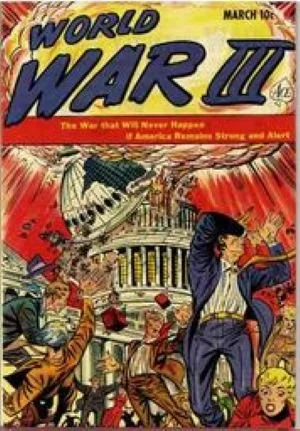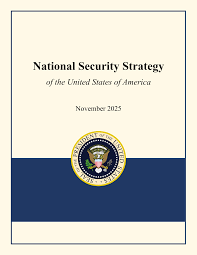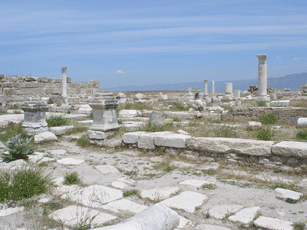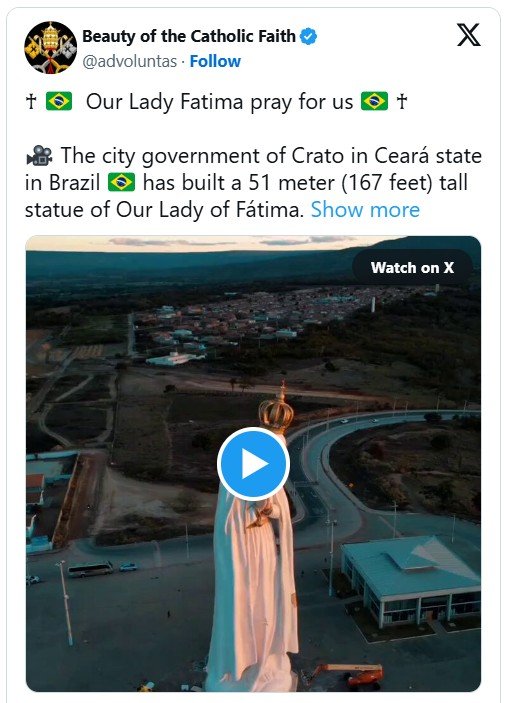In its latest public letter, Greg Williams, president of Grace Communion International (the current name of the Protestant group that took over and changed the old Worldwide Church of God) had the following:
Unity
July 20, 2022
During Easter season, we studied John 17 and explored the prayer of Jesus that he prayed for the disciples and us. How amazing for Jesus to include all believers in his prayer, and even more amazing to include us in his life and love. The essence of the prayer is, “that all of them may be one, Father, just as you are in me and I am in you.” (John 17:21) …
Paul … says this, “Make every effort to keep the unity of the Spirit through the bond of peace” (Ephesians 4:3, NIV).
The oneness, the unity that Jesus prayed for us is produced through the presence and power of the Spirit. It is a gift for us to receive, and then for us to pass along. https://update.gci.org/2022/07/unity/
GCI has a false, and unbiblical vision of Christian unity.
By discussing Easter in this context, Greg Williams reminded me that the one of the reasons the world celebrates “Easter”–which was supposed to be Passover–on a Sunday as a “Christian” holiday is because the sun-worshiping Emperor Constantine wanted his version of “unity” above the Bible.
Passover was always kept on the 14th of Nisan by those who claimed to be faithful to the practices of the Apostle John and the Bible.
But, since many compromised and wanted to keep it on a Sunday, there were two different dates the professing world was keeping Passover in the fourth century.
Emperor Constantine did not like that at all and convened the famous Council of Nicea in 325 A.D. to decide on a universal date:
…the emperor…convened a council of 318 bishops…in the city of Nicea…They passed certain ecclesiastical canons at the council besides, and at the same time decreed in regard to the Passover that there must be one unanimous concord on the celebration of God’s holy and supremely excellent day. For it was variously observed by people… (Epiphanius. The Panarion of Epiphanius of Salamis, Books II and III (Sects 47-80), De Fide). Section VI, Verses 1,1 and 1,3. Translated by Frank Williams. EJ Brill, New York, 1994, pp.471-472). A Sunday date was selected, instead of Nisan 14 (which can fall on any day of the week).
Notice what Constantine declared about this:
The commemoration of the most sacred paschal feast being then debated, it was unanimously decided, that it would be well that it should be everywhere celebrated upon the same day. What can be more fair, or more seemly, than that that festival by which we have received the hope of immortality should be carefully celebrated by all, on plain grounds, with the same order and exactitude? It was, in the first place, declared improper to follow the custom of the Jews in the celebration of this holy festival, because, their hands having been stained with crime, the minds of these wretched men are necessarily blinded. By rejecting their custom, we establish and hand down to succeeding ages one which is more reasonable, and which has been observed ever since the day of our Lord’s sufferings. Let us, then, have nothing in common with the Jews, who are our adversaries. For we have received from our Saviour another way… (Theodoret of Cyrus. Ecclesiastical History (Book I), Chapter IX. Excerpted from Nicene and Post-Nicene Fathers, Second Series, Volume 3. Edited by Philip Schaff and Henry Wace. American Edition, 1892. Online Edition Copyright © 2005 by K. Knight).
Actually, the Saviour observed Passover on the 14th of Nisan. It is those who reject the ways of our Saviour who accept the decision of the Roman Emperor over the Bible who do not observe it then. Notice that the first consideration was to not follow the Jews–and they were the ones who followed the Bible. Second, he claimed that people always accepted his Sunday date, but there is absolutely no evidence of this–Sunday Passover was something that second century Romans implemented–there is no proof whatsoever that any observed it on Sunday prior to that, thus Constantine’s second reason is also in error.
According to Eusebius’ Life of Constantine, Book III chapter 18, a more accurate translation of that last line above from the Roman Emperor Constantine should be:
Let us then have nothing in common with the detestable Jewish crowd; for we have received from our Saviour a different way.
I do not recall Jesus indicating that Jews were detestable (He was a Jew) nor that He ever changed the date of Passover. But apparently Constantine felt otherwise. And the Sunday observance is now known as Easter (a related article of interest may be Did Early Christians Celebrate Easter?). Instead of biblical unity, ‘Constantinian’ unity is what GCI and others seem to want.
The Catechism of the Catholic Church teaches:
1170 At the Council of Nicea in 325, all the Churches agreed that Easter, the Christian Passover, should be celebrated on the Sunday following the first full moon (14 Nisan) after the vernal equinox (Catechism of the Catholic Church. Imprimatur Potest +Joseph Cardinal Ratzinger. Doubleday, NY 1995, p. 332).
But the idea that “all the Churches agreed” is not true as the bishops from the faithful churches did not attend that Council.
Notice what the Roman Catholic priest and historian Bellarmino Bagatti wrote:
…the inhabitants of Syria, of Cilcia and of Mesopotamia were still celebrating Easter {Passover} with the Jews…
The importance of the matters to be discussed and the great division that existed had led Constantine to bring together a big number of bishops, including confessors of the faith, in order to give the impression that the whole of Christendom was represented.
In fact…the churches of Jewish stock had had no representation…From this we can conclude that no Judaeo-Christian bishop participated in the Council. Either they were not invited or they declined to attend. And so the capitulars had a free hand to establish norms for certain practices without meeting opposition or hearing other view points. Once the road was open future Councils would continue on these lines, thus deepening the breach between the Christians of two-stocks. The point of view of the Judaeo-Christians, devoid of Greek philosophical formation, was that of keeping steadfast to the Testimonia, and therefore not to admit any word foreign to the Bible, including Homoousion (Bagatti, Bellarmino. Translated by Eugene Hoade. The Church from the Gentiles in Palestine. Nihil obstat: Ignatius Mancini, 1 Februari 1970. Imprimi potest: Herminius Roncari, 26 Februari 1970. Imprimatur: +Albertus Gori, die 28 Februarii 1970. Franciscan Printing Press, Jerusalem, 1971, pp. 47-48).
So not every church was represented. Nor did everyone accept the decree of the sun-worshipping emperor as the Roman Catholic-supporting Epiphanius noted a few decades after that Council:
The Quartodecimans contentiously keep Passover on one day, once per year…They keep the Passover on whichever day the fourteenth of the month falls…Christ had to be slain on the fourteenth of the month in accordance with the law (Epiphanius. The Panarion of Epiphanius of Salamis, Books II and III (Sects 47-80), De Fide). Section IV, Verses 1,3;1,6;2,6. Translated by Frank Williams. EJ Brill, New York, 1994, pp. 23-25).
The Quartodecimans only kept Passover once per year–not daily like most Roman Catholic priests do–not weekly or monthly like some Catholics/Protestants do. It is of interest to note that Epiphanius recognized that Jesus HAD to be slain on the 14th of the month. It is sad that he and others did not believe they needed to observe it when and how Jesus taught. Strangely he wrote this about the practices of the Greco-Roman church (which we now call Roman and Orthodox Catholics, but he calls “God’s holy church”):
But God’s holy church does not miss the truth in any way in her fixing the date of this mystery. She uses not only the fourteenth day, but also the seven days which recur order of the seven days of the week…And she uses not only the fourteenth day of the lunar month, but the course of the sun as well, to keep us from observing two Passovers in one year and not even one in another. We observe the fourteenth day, then, but we wait until after the equinox and bring the end of our full observance to the sacred Lord’s day (Epiphanius. The Panarion of Epiphanius of Salamis, Books II and III (Sects 47-80), De Fide). Section IV, Verses 3,1; 3,2; 3,3-4. Translated by Frank Williams. EJ Brill, New York, 1994, pp. 25).
Well, the Greco-Roman Catholics and Protestants most certainly do not observe Passover on the evening of the 14th unless that happens to fall when some observe an evening mass–the equinox argument is not scriptural. And since the “Lord’s Supper” is observed frequently, most practicing Greco-Roman Catholics and Protestants do observe it more than once per year.
The fourth/fifth century historian Epiphanius even admits that the church used to observe the 14th when he wrote:
Audians…they choose to celebrate the Passover with the Jews–that is they contentiously celebrate the Passover at the same time as the Jews are holding their Festival of Unleavened Bread. And indeed that this used to be the church’s custom (Epiphanius. The Panarion of Epiphanius of Salamis, Books II and III (Sects 47-80), De Fide). Section VI, Verses 8,11; 9,2. Translated by Frank Williams. EJ Brill, New York, 1994, pp. 410-411).
Anyway, since Constantine’s declarations did not stop everyone from properly observing Passover, a later Roman Emperor after he became a baptized “Christian”, decreed the death penalty:
Edicts of Theodosius against the heretics, A.D. 380-394…Theodosius…decreed that…by the death of the offender; and the same capital punishment was inflicted on the Audians, or Quartodecimans, who should dare to perpetrate the atrocious crime of celebrating on an improper day the festival (Gibbon E. Decline and Fall of the Roman Empire, Volume III, Chapter XXVII. ca. 1776-1788).
The various enactments against heretics are contained in the Code of Theodosius (16. tit. 5. s. 6—23 ; and the commentary of Gothofredus): the Eunomians, whose guilt consisted in denying any resemblance between the two sub- tances, and who were accordingly Anomoeans, were also deprived of the power of testamentary disposition, and of taking by testamentary gift: they seem, in fact, to have been deprived of all the rights of citizens. The Manichaean heresy was punishable with death; and the same penalty threatened the Audians or the Quartodecimans, who celebrated the festival of Easter on the wrong day. To the reign of Theodosius belonged the glory or the infamy of establishing Inquisitors of Faith, who seem to have been specially enjoined to look after the crime of the Quartodecimans (Smith W. A Dictionary of Greek and Roman Biography and Mythology : Oarses-Zygia. J. Murray, 1890 Item notes: v. 3 Original from Harvard University Digitized Jul 8, 2008, p. 1064).
Is killing those that followed the example of Jesus and John, to observe the Passover on the 14th instead of Sunday, a sign of a true Christian leader or a sign of a supporter of antichrist? Notice that the office of the “Inquisitors” was actually first formed to deal with people who kept Passover on the original biblical date–did you know that the date of Passover was considered to be that important?
Greg Williams wrote of “the bond of peace,” but those who endorsed a Sunday ‘Passover’ (which he and others often call Easter) became murderers.
The Roman Catholic and Orthodox saint John Chrysostom preached the following in 387 A.D.:
In speaking about this feast of the Passover, the Law says to them something such as this: “You will not be able to keep the Passover in any of the cities which the Lord your God gives to you.” The Law bids them keep the feast on the fourteenth day of the first month and in the city of Jerusalem. The Law also narrowed down the time and place for the observance of Pentecost, when it commanded them to celebrate the feast after seven weeks, and again, when it stated: “In the place which the Lord your God chooses.” So also the Law fixed the feast of Tabernacles. (4) Now let us see which of the two, time or place, is more necessary, even though neither the one nor the other has the power to save. Must we scorn the place but observe the time? Or should we scorn the time and keep the place? What I mean is something such as this. The Law commanded that the Passover be held in the first month and in Jerusalem, at a prescribed time and in a prescribed place…But the Passover comes to an end on the twenty-first of that month. If they began the feast on the fourteenth day of the first month and then continued it for seven days, they then come to the twenty-first …the Law said they must not observe those rituals outside Jerusalem (John Chrysostom. Homily IV Against the Jews IV:3-4,V:4,5. Catholic Christians of Antioch. Turning to Sabbath and The New Moon Day and Other Holy Days. 387 A.D.).
Although he is correct that the Bible specifies the dates of the Holy Days, John Chrysostom is incorrect that Jerusalem is the only place.
That is never taught in the law.
To the contrary, the Jews were not even in Jerusalem when God listed the holy days in the books of Exodus and Leviticus (Jerusalem was not taken by the children of Israel until after the death of Joshua, see Judges 1:1-8).
Another question is, “Was the church supposed to change its beliefs and practices throughout history or be faithful to what the apostles originally received?”
No, not if the change conflicts with scripture.
The Apostle Jude wrote:
3 Beloved, while I was very diligent to write to you concerning our common salvation, I found it necessary to write to you exhorting you to contend earnestly for the faith which was once for all delivered to the saints (Jude 3).
The reality is that GCI is focused on being, and appearing to be, Protestant to the world.
GCI wants unity with the world.
Its cross-containing logo (see picture at the beginning of this post) was intended to do that.
GCI certainly did not get that from the Bible or the practices of original Christians (for proof, check out the article What is the Origin of the Cross as a ‘Christian’ Symbol?).
The Bible warns:
14 Do not be unequally yoked together with unbelievers. For what fellowship has righteousness with lawlessness? And what communion has light with darkness? 15 And what accord has Christ with Belial? Or what part has a believer with an unbeliever? 16 And what agreement has the temple of God with idols? For you are the temple of the living God. As God has said:
“I will dwell in them
And walk among them.
I will be their God,
And they shall be My people.”17 Therefore
“Come out from among them And be separate, says the Lord. Do not touch what is unclean, And I will receive you. 18 ‘I will be a Father to you, And you shall be My sons and daughters, Says the Lord Almighty.” (2 Corinthians 6:14-18)
It is because of scriptures like the above that the faithful had to leave the Tkach WCG, which later changed its name to Grace Communion International.
Anyway, my hope for any still part of GCI is that they will study God’s word, agree to truly live by it, repent, and pray that Jesus would set them free (cf. John 8:32) from Protestant errors and support the most faithful church.
Article with related written items/videos: Grace Communion International pushing ‘Constantinian’ unity
Click here for current news and analysis as well as literature in over 120 languages.
Click here for free online books and booklets in the English language.
Information on broadcast times for the European Gospel Radio /Short Wave Radio and other radio stations: Radio Stations
BNP Program intro music composed by: James Martenet.
BNP Program intro announcement: Bill Wedekind.
You may be interested in:
Protestant, Baptist, and CCOG History
The First Protestant, God’s Command, Grace, & Character
How Does the Church of God Differ from Protestantism?
Ecumenism, Rome, and CCOG Differences
World Council of Churches Peace Plan
World Council of Churches' agenda will result in disaster for the Vatican
Should you be concerned about the ecumenical movement?
Universal Offer of Salvation 1: Apocatastasis
Universal Offer of Salvation 2: Jesus Desires All to be Saved
Mysteries of the Great White Throne Judgment (Universal Offer of Salvation part 3)



























